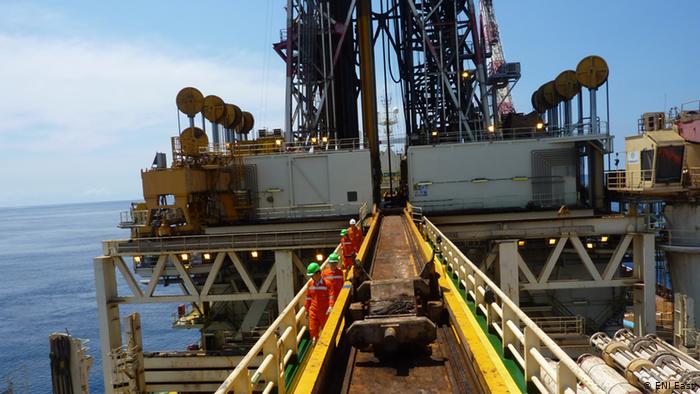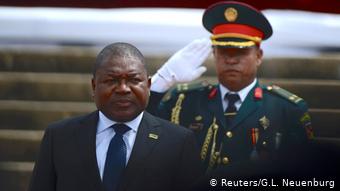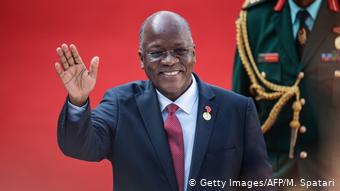Mozambique: Finance Minister discusses suspension of aid with US Ambassador - AIM report
Cabo Delgado: Does Tanzania want in on the gas? – DW

A researcher believes that Mozambique’s neighbour is dissatisfied with the fact that the whole of the investment in natural gas extraction has gone to Cabo Delgado, and warns that if Tanzania’s ‘comfort’ is not guaranteed, the conflict will perpetuate itself.
The president of Mozambique went to Tanzania this week to seek from his counterpart there solutions to a common enemy: terrorism.
“Tanzania is saying that it prefers to die with us, there is no other alternative. That is what we heard [on the visit], and that encourages us,” Filipe Nyusi said after the meeting with President John Magufuli.
However, Tanzania’s performance, while considered absolutely crucial, is questioned, both in terms of supporting refugees and combating terrorists. Can Mozambique in fact count on its neighbour to help deliver peace in the north?
Specialist in conflict resolution and public policy Rufino Sitoe believes that, “because it is cooperation designed from the top, the commitment is greater – when one president commits himself to another”.
“I think there may now be more energetic action in this direction,” Sitoe says. “It is possible that we will achieve important strategic gains in counter-insurgency with this cooperation. One of the most important gains of cooperation in terms of the counter-insurgency is to cut off the movement of this group, at the level of logistics, because it is known that it is by land and by sea [that their material arrives] .”

Tanzania’s heartache over gas investments
However, analysts suspect that the country once considered Mozambique best neighbour now prefers to close its eyes and cross its arms regarding terrorism in Cabo Delgado because of the billion-dollar natural gas investments made on its neighbour’s ‘patch’.
Some sectors see the absence of President Magufuli from Filipe Nyusi’s inauguration as a sign of friction.
African affairs expert Fernando Cardoso points out that “the Tanzanian government is not waging war on Mozambique, but since the middle of this decade it has been unhappy with the gas issue. In other words, Tanzania would like to have been the object of investments that are being made in Mozambique”.
“Multinationals have decided to invest in Mozambique, because it is economically more viable,” Cardoso continues. “Because offshore, the fundamental [part] of the gas reserves is in Mozambique, [although it is] true that there are gas deposits entering the offshore just opposite Tanzania. So what is happening is that there is a bad relationship between Mozambique and Tanzania.”

Tanzania’s ‘comfort’ needs to be guaranteed
It is not known whether the matter is already being discussed between Maputo and Dar-es-Salam, but it seems to be far from being the subject of the Mozambican Presidency’s communiqués.
However, Cardoso argues that the solution will involve negotiations aimed at giving Tanzania the “slice of the cake” it supposedly wants.
“And, as we know, the borders are porous and there are also jihadists in southern Tanzania, operating against the interests and wishes of the Government of Tanzania. So it is absolutely essential that the two governments, with the support of multinational corporations and other governments, sit at the table and try to reach a situation where Tanzania is comfortable with a solution to what it also considers to be in its interest and its right.”
If that does not happen, “we will see this conflict ebb and flow, forever perpetuating itself in those areas”, the academic warns.
True Tanzanian support only through benefits?
Hence the question: if Tanzania does not benefit from the investment in Mozambican gas, the largest-ever private sector investment in Africa, will it genuinely cooperate with Mozambique?

Rufino Sitoe recalls that “states defend their interests – this is the principle of international relations. Among states there are no friends or enemies, there are only interests”.
If “Tanzania manages to achieve its interests with these acts, which we can consider sabotaging exploration projects, it will obviously have more difficulty cooperating with Mozambique.”
“If it is to benefit, surely. If the continuity of violence generates negotiation that favours Tanzania, it will obviously not be interested in collaborating with Mozambique,” Sitoe argues.












Leave a Reply
Be the First to Comment!
You must be logged in to post a comment.
You must be logged in to post a comment.